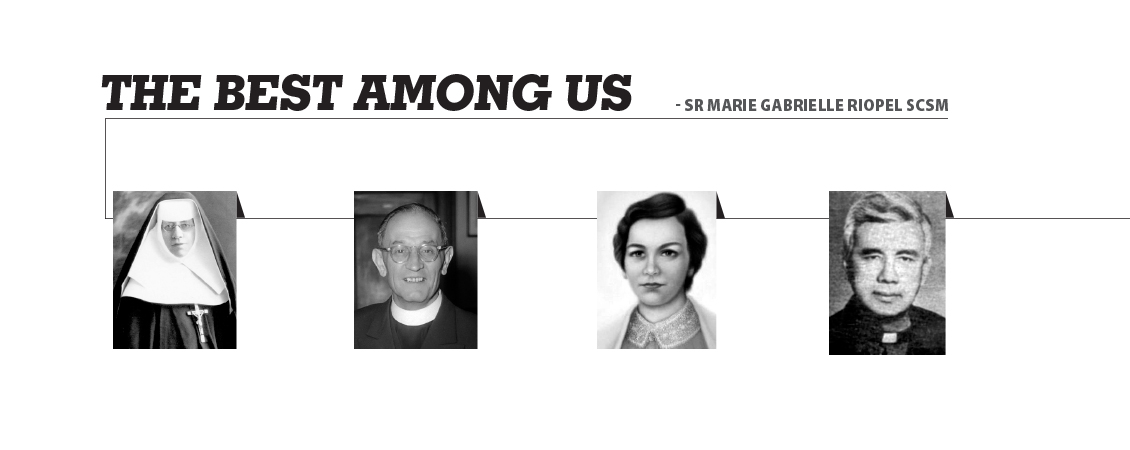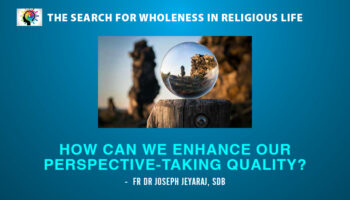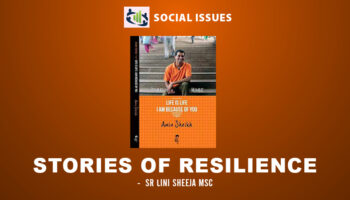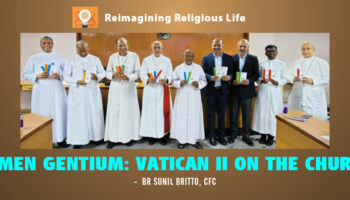Katharine Drexel (1858-1955) – 3 March
Katharine Drexel is the first American-born saint to be canonized by the Catholic Church.
Though born in an extremely wealthy family–her father was a banker—she surprised the social circles of her time by leaving it all to enter a religious order.
She established a religious congregation, the Sisters of the Blessed Sacrament, in order to reach out and combat the effects of racism especially for the First Nation people (Native Americans, or the group some of us refer to as “American Indians”) and for the African Americans of the United States.
Founding and staffing schools for both Native Americans and Afro-Americans throughout the country was the priority for Katharine and her congregation. During her lifetime, she opened, organized and directly supported nearly sixty schools and missions, especially in the West and Southwest United States. Her ‘educational masterpiece’ was the establishment in 1925 of Xavier University of Louisiana, the only predominantly Afro-American Catholic institution of higher learning in the United States.
How could a wealthy heiress like Katherine become a religious, start a congregation and address the issue of racial inequalities much before it became a society’s concern?
It is said that first, watching her stepmother’s three-year struggle with terminal cancer taught her that the ‘Drexel money’ could not buy safety from pain or death.
Second, seeing the social injustices and state of destitution of the Native Americans and African Americans compelled her to ‘do something, to start something.’
And, finally, Pope Leo XIII’s challenge to become a missionary herself instead of searching for others to do the mission led her to give her whole life to God and the mission.
The Vatican cites the fourfold aspects of Drexel’s legacy:
- a love of the Eucharist and perspective on the unity of all peoples;
- courage and initiative in addressing social inequality among minorities before such concern aroused public interest in the United States;
- her belief in quality education for all and efforts to achieve it;
- selfless service, including the donation of her inheritance, for the victims of injustice.
—————————————————————————————————————————————————————————————————
Martin Niemöller (1892-1984) – 6 March
Martin Niemöller was a German anti-Nazi theologian and Lutheran pastor.
During the First World War, Niemöller had a successful career as submarine navigator. However, at the end the war, he resigned his commission, as he rejected the new democratic government of the German Empire. After marrying Else Bremer, he pursued his earlier idea of becoming a Lutheran pastor, and studied Protestant theology.
Initially, as a national conservative, Martin Niemöller supported the ideas of Adolf Hitler. He then went on to become one of the founders of the Confessing Church, which opposed the Nazification of German Protestant churches.
He is best known for his statement:
“First they came for the Socialists, and I did not speak out—
Because I was not a Socialist.
Then they came for the Trade Unionists, and I did not speak out—
Because I was not a Trade Unionist.
Then they came for the Jews, and I did not speak out—
Because I was not a Jew.
Then they came for me—and there was no one left to speak for me.”
This is what happens when we keep quiet in the face of evil.
For his opposition to the Nazis’ state control of the churches, Niemöller was imprisoned in Sachsenhausen and Dachau concentration camps from 1938 to 1945 and narrowly escaped execution.
After his imprisonment, he expressed his deep regret about not having done enough to help the victims of the Nazis.
Niemöller stated that his eight-year imprisonment had been the turning point in his life. After it he viewed things differently.
Under the impact of a meeting with Otto Hahn (the “father of nuclear chemistry”), in July 1954, Niemöller became an outspoken pacifist and campaigner for nuclear disarmament. He was a leading figure in the post-war German peace movement and was even brought to court in 1959 for speaking about the military in a very unflattering way.
He was awarded the Lenin Peace Prize in December of 1966.
Niemöller died at Wiesbaden, West Germany, on 6 March 1984, at the age of 92.
—————————————————————————————————————————————————————————————————
Angela Salawa (1881-1922) – 12 March
Angela Salawa was a Polish woman who served in hospitals during the World War I.
She was born in a poor family and suffered from being weak and sickly throughout her life.
She received two years of formal education, and at the age of 12, began to work as a domestic in nearby homes.
In 1897, she moved to Kraków, where her older sister lived. There, she started working as a maid.
Angela also gathered together and instructed young women domestic workers through the Saint Zita Association. During these years, Angela underwent painful misunderstanding with her family and from false accusations from her employer.
Though she had considered becoming a religious, her weak physical health did not allow her to do so. She decided to remain in the world, taking private vows of purity and virtue in 1900.
In 1912, she became a member of the Secular Franciscan Order.
She felt an affinity with Saint Francis of Assisi, who, like Angela herself, had broken up with his family.
During World War I, she helped prisoners of war without regard for their nationality or religion. She worked as a nurse in a Krakow hospital, spending her own money and any that she could beg to buy better food for injured soldiers. She found comfort and inspiration in the writings of Teresa of Avila and John of the Cross.
In 1916 her employer accused her of stealing, and dismissed her. In addition to her physical pain and illness, she became homeless. She was even discharged from the hospital because she appeared to be well.
Eventually she found a place in a basement room, abandoned by family, friends and neighbours. She survived on the charity of the Saint Zita Association, and spent her time in prayer
She died on 12 March 1922.
What We Can Learn from Angela: Feeding the hungry doesn’t guarantee we will be fed in turn in our hour of need. The source of Angela’s compassion was that she had first experienced God’s compassion and love.
—————————————————————————————————————————————————————————————————
Rutilio Grande (1928-1977) – 12 March
Rutilio grande was a Jesuit priest from El Salvador. He was a close friend of Archbishop Óscar Arnulfo Romero and the first priest assassinated before the civil war started.
Rutilio Grande was born on 5 July 1928, to a poor family in El Paisnal, El Salvador.
At the age of 17, Grande entered the Jesuit order and started his formation. After pronouncing his vows, he travelled to various countries his studies. It is at the major seminary of San José de la Montaña that Grande met and became friends with Romero, a fellow student. Grande was ordained a priest in 1959.
After his ordination, in 1963, Rutilio Grande went to the Lumen Vitae Institute in Brussels, Belgium. He was particularly influenced by his experiences of an inclusive liturgy which insisted upon the widest and deepest lay participation possible at that time.
He returned to El Salvador in 1965 and was appointed director of social action projects at the seminary in San Salvador.
During this time, Grande initiated a process of formation for seminarians which included pastoral “immersions” in the communities they would someday serve. Grande sought equilibrium between prayer, study and apostolic activity.
In 1973, Grande embarked on a team-based Jesuit evangelization “Mission” to Aguilares, El Salvador.
Grande led with the Gospel but did not shy away from speaking on social and political issues. He dared speaking publicly about the land reform, the relationship of rich and poor, liturgical inclusiveness, workers’ rights, etc. He thus made the Catholic faith real for very poor people.
This did not go well with the local landowners, who saw Grande’s organization of the peasants as a threat to their power.
On 13 February 1977, Grande preached a sermon denouncing the government’s expulsion of Father Bernal, a Colombian priest.
On 12 March 1977 Rutilio Grande was assassinated by the security forces of El Salvador, just outside the village where he was born, suffering martyrdom for the people he served and loved. It was his murder that made Bishop Oscar Romero determined to speak out against government’s atrocities.
Sr Marie Gabrielle Riopel SCSM





